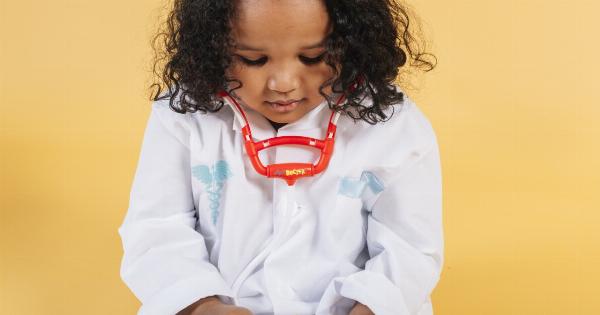IVF or In vitro fertilization is an assisted reproductive technology that has helped millions of couples conceive a child. In IVF, eggs are collected from a woman’s ovaries and fertilized with sperm in a laboratory.
The fertilized eggs or embryos are then transferred into the woman’s uterus. IVF has been known to increase the chances of pregnancy for couples who are struggling to conceive naturally. However, recent studies have shown that there might be a connection between IVF and child asthma.
What is Asthma?
Asthma is a chronic respiratory disease that affects the airways in the lungs. The airways become swollen and narrow, making it difficult to breathe. Asthma symptoms include wheezing, coughing, shortness of breath, and chest tightness.
Asthma is usually diagnosed in childhood, and it is the most common chronic disease in children. The exact cause of asthma is unknown, but it is believed to be caused by a combination of genetic and environmental factors.
How is IVF Connected to Child Asthma?
A study published in the Journal of the American Medical Association (JAMA) in 2011 found that children conceived through IVF had a higher risk of asthma compared to children conceived naturally.
The study followed over 18,000 children from birth to age 8 and found that children conceived through IVF had a 39% higher risk of asthma compared to children conceived naturally. The study also found that the risk of asthma was higher in children born after fresh embryo transfers compared to those born after frozen embryo transfers.
The exact reason for the connection between IVF and child asthma is unknown. Researchers believe that there could be several factors at play.
One theory is that the higher risk of asthma in IVF children could be due to the underlying fertility issues of the parents. Couples who undergo IVF often have a higher incidence of subfertility or infertility, which are both associated with an increased risk of allergy and asthma in the offspring.
Another theory is that the IVF process itself could be contributing to the higher risk of asthma. The IVF procedure involves the manipulation of gametes and embryos, which could potentially lead to epigenetic changes in the developing fetus.
Epigenetics refers to changes in gene expression that are not caused by changes in the DNA sequence but rather by environmental factors. Epigenetic changes could affect the development of the immune system and lead to an increased risk of asthma.
What Can You Do to Reduce the Risk of Asthma in IVF Children?
If you are planning to undergo IVF, you might be wondering what you can do to reduce the risk of asthma in your future child. Unfortunately, there is no guaranteed way to prevent asthma, but there are several things you can do to reduce the risk.
1. Choose a High-Quality IVF Center: The quality of the IVF center you choose could have an impact on the risk of asthma in your child.
Look for a center that has a high success rate and uses the latest technologies to minimize the risk of epigenetic changes.
2. Consider Frozen Embryo Transfer: The JAMA study found that children born after frozen embryo transfers had a lower risk of asthma compared to those born after fresh embryo transfers.
Talk to your doctor about whether frozen embryo transfer is a good option for you.
3. Maintain a Healthy Pregnancy: A healthy pregnancy can help reduce the risk of asthma in your child. Eat a balanced diet, exercise regularly, and avoid smoking and alcohol during pregnancy.
4. Breastfeed Your Baby: Breastfeeding has been shown to reduce the risk of asthma in children. If possible, try to breastfeed your baby for at least six months after birth.
Conclusion
IVF has been a lifesaver for many couples struggling with infertility. However, the connection between IVF and child asthma has raised some concerns. While the exact cause of the connection is unknown, it is believed to be due to a combination of factors.
If you are planning to undergo IVF, talk to your doctor about how you can minimize the risk of asthma in your future child.






























